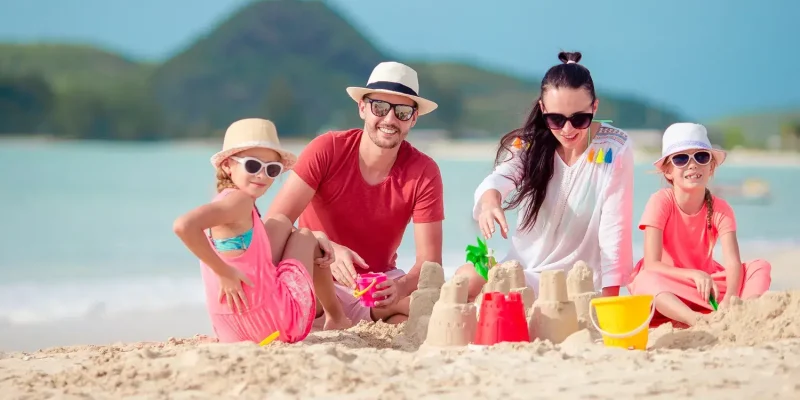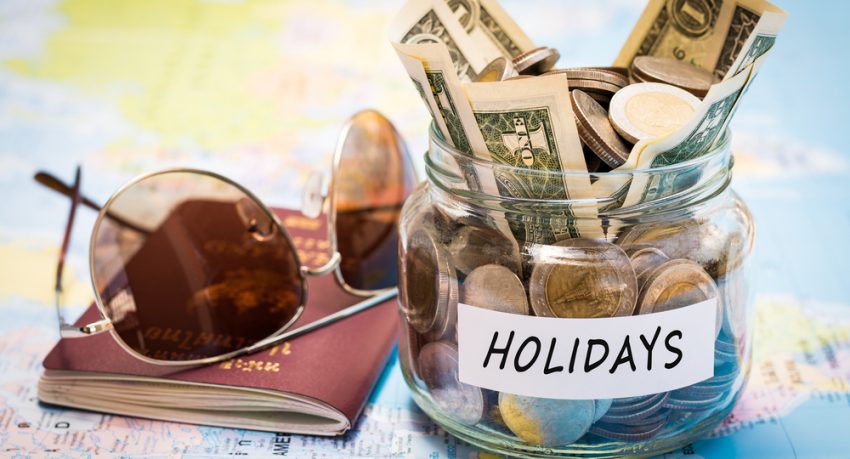
Introduction: Understanding the True Meaning of a Holiday
A holiday represents more than just a break from work or routine; it is a deliberate opportunity to explore, rejuvenate, and immerse oneself in new experiences. Whether for leisure, cultural exploration, or wellness, holidays shape our perception of travel, personal growth, and connection to the world. Across different countries and cultures, holidays are celebrated with unique customs, seasonal patterns, and local attractions, making them pivotal for tourism and personal enrichment. This article provides an in-depth exploration of the concept of a holiday, the planning process, types of holidays, cultural significance, and strategies for maximizing the experience.
The Definition and Significance of a Holiday
A holiday can be defined as a designated period of time set aside for relaxation, travel, cultural engagement, or personal enjoyment. Its significance lies in both personal and social dimensions:
- Personal Rejuvenation: Time away from routine helps reduce stress, restore mental and physical energy, and promote overall well-being.
- Cultural Exploration: Holidays provide opportunities to experience local traditions, cuisine, festivals, and customs, enhancing cultural literacy.
- Economic Impact: Tourism during holidays contributes significantly to local economies, including hospitality, transportation, retail, and entertainment sectors.
- Social Connection: Holidays encourage shared experiences with family, friends, or social groups, strengthening personal relationships.
Understanding the multifaceted role of holidays allows travelers to approach them with purpose, making each experience meaningful and impactful.
Types of Holidays
Holidays can be categorized based on purpose, experience, and location, providing diverse options for travelers:
- Leisure Holidays: Focused on relaxation and enjoyment, often at resorts, beaches, or spa destinations. Examples include tropical retreats and luxury cruises.
- Adventure Holidays: Designed for thrill-seekers and outdoor enthusiasts, offering activities such as trekking, scuba diving, skiing, or paragliding.
- Cultural and Heritage Holidays: Emphasize immersion in local culture, history, and traditions, often involving museum visits, historical tours, and participation in festivals.
- Wellness Holidays: Concentrated on physical and mental well-being, including yoga retreats, spa treatments, meditation programs, and detox experiences.
- Family Holidays: Structured to accommodate all age groups, combining entertainment, educational activities, and leisure suitable for children and adults alike.
- Solo Holidays: Tailored for self-exploration, reflection, and personal growth, often focusing on cultural learning, adventure, or creative pursuits.
Choosing the type of holiday depends on personal interests, travel goals, budget, and time availability, ensuring a tailored and fulfilling experience.
Planning a Successful Holiday
Effective planning is critical to making the most of a holiday. It involves strategic preparation across multiple dimensions:
- Destination Research: Study the location’s climate, culture, attractions, local laws, and accessibility. Identify seasonal highlights and off-peak opportunities.
- Budget Management: Factor in travel costs, accommodations, food, local transportation, activities, insurance, and unexpected expenses. Using flexible budgeting strategies can prevent overspending.
- Itinerary Development: Create a structured plan that balances sightseeing, relaxation, and spontaneous exploration. Include must-visit sites, local experiences, and downtime.
- Booking and Logistics: Secure transportation, accommodations, and activity tickets in advance to avoid last-minute complications and ensure optimal options.
- Health and Safety Considerations: Prepare vaccinations, travel insurance, emergency contacts, and knowledge of local healthcare facilities to mitigate risks.
Proper planning transforms a holiday from a simple break into a seamless, enriching journey, ensuring comfort, safety, and meaningful experiences.
Cultural Significance of Holidays
Holidays often carry deep cultural and social meanings that vary across regions:
- Religious and Spiritual Observances: Many holidays originate from religious traditions, such as Christmas, Diwali, Eid, and Hanukkah, offering insight into faith-based practices and communal celebrations.
- National and Historical Significance: National holidays commemorate important historical events, independence days, or revolutionary milestones, fostering national identity and pride.
- Seasonal Festivals: Certain holidays align with agricultural cycles, solstices, or seasonal changes, reflecting a community’s connection to nature and environment.
- Customs and Rituals: Local customs, dress, cuisine, and performances during holidays provide a unique lens to understand the social fabric and heritage of a community.
Engaging with these aspects of holidays enriches the travel experience, allowing visitors to participate respectfully in local traditions and celebrations.
Holiday Destinations and Experiences
The choice of destination defines the flavor of a holiday, and the experiences available at each location are pivotal to the overall satisfaction:
- Urban Destinations: Cities offer museums, theaters, nightlife, shopping districts, and historical sites. Holidays in urban centers like New York, London, or Tokyo focus on culture, dining, and entertainment.
- Beach Destinations: Coastal retreats such as the Maldives, Bali, and the Amalfi Coast provide sun, sand, and water-based activities, ideal for leisure and relaxation.
- Mountain and Nature Retreats: Trekking in the Himalayas, exploring the Rockies, or visiting national parks combines adventure with natural beauty and wildlife observation.
- Rural and Countryside Holidays: Immersion in local agriculture, crafts, and quiet village life offers slow travel experiences and connection with rural culture.
- Wellness Retreats: Locations focusing on health, mindfulness, and holistic practices, such as Kerala, Ubud, or Sedona, provide structured programs for rejuvenation.
By aligning destination choice with personal interests, travelers maximize the value and satisfaction of their holiday.
Impact of Holidays on Well-being
Numerous studies have shown that taking holidays positively affects physical, mental, and emotional health:
- Stress Reduction: Stepping away from daily responsibilities allows for relaxation, reduced cortisol levels, and improved sleep patterns.
- Enhanced Creativity and Productivity: Exposure to new environments and experiences stimulates creative thinking and problem-solving abilities.
- Stronger Social Bonds: Shared experiences with family or friends during holidays strengthen relationships and emotional connection.
- Cultural Awareness and Empathy: Engaging with diverse communities fosters understanding, tolerance, and global perspective.
- Mental Health Benefits: Time spent in natural surroundings, engaging in leisure activities, or practicing mindfulness improves mood, reduces anxiety, and enhances overall psychological resilience.
Understanding these benefits underscores the importance of planning regular holidays for a balanced, healthy lifestyle.
Sustainable and Responsible Holiday Practices
As tourism grows, sustainable practices are essential to minimize negative impacts on destinations and communities:
- Eco-Friendly Travel: Using public transport, reducing air travel when possible, and choosing environmentally conscious accommodations.
- Responsible Engagement: Supporting local businesses, respecting cultural norms, and avoiding activities that exploit wildlife or natural resources.
- Waste Reduction: Minimizing single-use plastics, proper disposal of trash, and participation in conservation programs.
- Community Contribution: Participating in community-based tourism initiatives, volunteering, or donating to local projects supports socio-economic development.
Sustainable holidays ensure that destinations remain vibrant, culturally rich, and environmentally healthy for future generations.
Maximizing the Holiday Experience
To fully enjoy a holiday, travelers should adopt strategies that balance planning with spontaneity:
- Research Local Experiences: Explore local markets, workshops, performances, and culinary tours to immerse in the culture.
- Flexibility in Itinerary: Allow for unplanned activities, relaxation, or changes in schedule based on mood or discovery.
- Document the Journey: Journaling, photography, and social sharing help preserve memories and reflect on the experience.
- Engage with Locals: Conversing with residents, guides, and artisans deepens understanding and creates meaningful connections.
- Mindful Travel: Paying attention to surroundings, savoring moments, and limiting distractions enhances personal satisfaction and emotional enrichment.
These approaches transform a holiday from a mere trip into a profound, memorable experience.
Conclusion: The Transformative Power of Holidays
A holiday is a transformative opportunity to explore, learn, relax, and connect. Beyond the physical journey, it offers mental rejuvenation, cultural immersion, and personal growth. Whether through leisure, adventure, wellness, or cultural exploration, holidays shape perspectives and foster a deeper appreciation for the world. Thoughtful planning, responsible practices, and meaningful engagement with local communities maximize the value of every holiday, leaving travelers enriched and inspired.
FAQ Section
What is the difference between a holiday and a vacation?
A holiday can refer to culturally or officially recognized days off, whereas a vacation is typically a personal period of leisure travel or rest. In practice, both involve breaks from routine.
How can I plan a budget-friendly holiday?
Research off-season travel, use price comparison tools, book in advance, opt for local accommodations, and explore free or low-cost activities.
Are holidays essential for mental health?
Yes. Taking time off helps reduce stress, prevent burnout, enhance creativity, and improve overall emotional well-being.
What are some popular holiday types for cultural immersion?
Festivals, heritage tours, culinary workshops, language immersion programs, and homestays offer deep engagement with local culture.
How can I make my holiday environmentally sustainable?
Choose eco-friendly transport, support local businesses, reduce waste, respect wildlife, and participate in conservation initiatives.
Are solo holidays safe and beneficial?
Solo holidays can be safe with proper planning and awareness, offering benefits such as self-discovery, independence, and personalized experiences.
How far in advance should I plan a holiday?
Planning depends on the destination and season, but booking flights, accommodations, and key activities at least 3-6 months in advance is generally recommended for optimal options and prices.
This article offers an in-depth, evidence-based guide to holidays, covering planning, cultural significance, wellness, sustainability, and practical tips, with a human-like flow and structured for SEO optimization.






